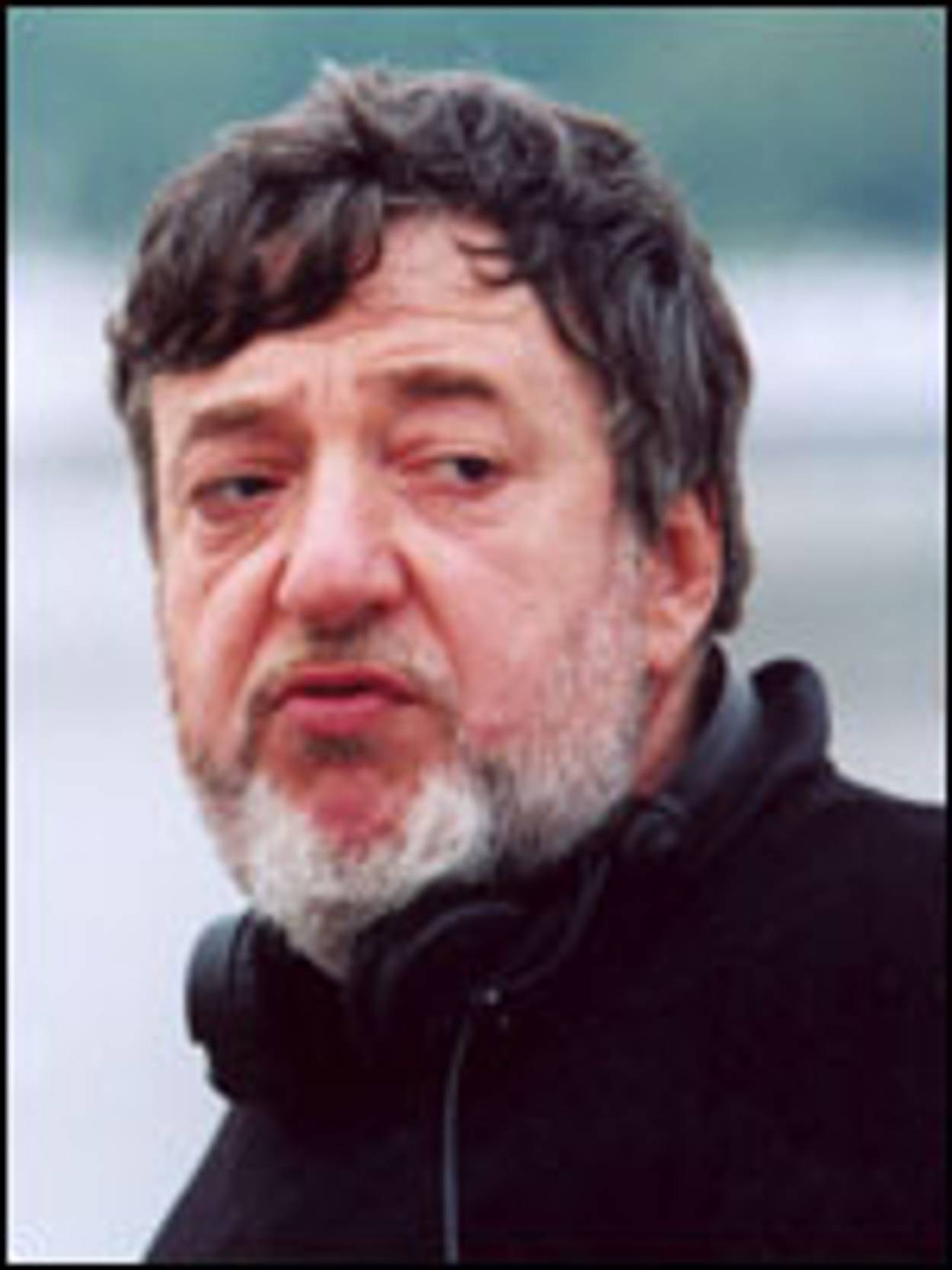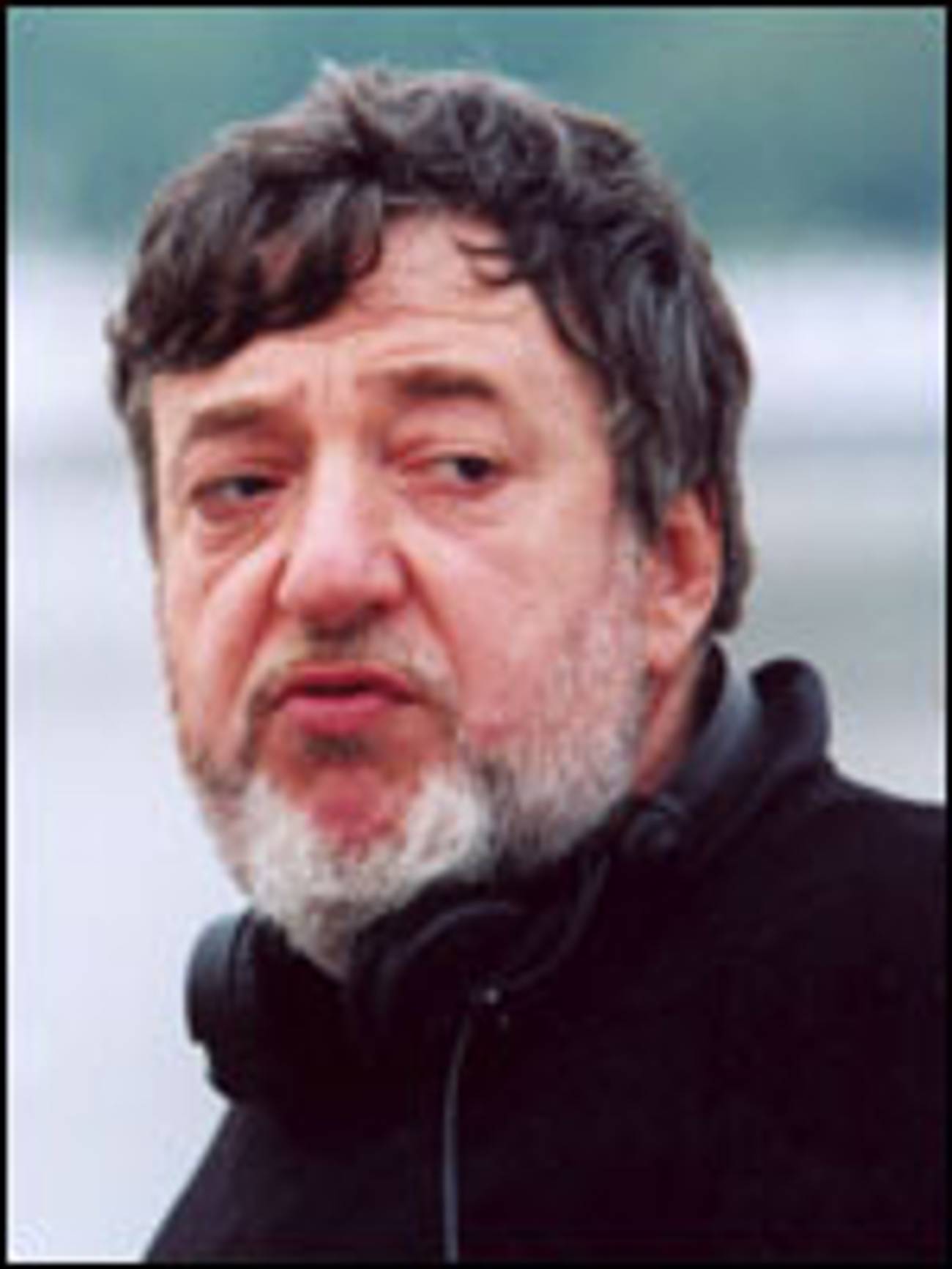Mommie Dearest
Russia may torment Pavel Lounguine, but the filmmaker can’t help himself. He keeps returning to explore their messy relationship.




Born in Moscow in 1949, Pavel Lounguine worked as a screenwriter on the trifling fare a Soviet artist resorted to if he wished to refrain from ideological bombast: “children’s films or comedies, or horses—you know, Russian cowboy films,” as he once put it. Then, during perestroika, he wrote a script about the uneasy friendship between an alcoholic Jewish saxophone player and a working-class ethnic Russian taxi driver in Moscow. Taxi Blues, made with French backing, won the first-time director an award at Cannes in 1990. He has since made five more films, among them Luna Park (1992), about an ultranationalist thug who discovers he has a Jewish father, and, most recently, Tycoon (2002), loosely based on the true story of one partly Jewish mogul and presaging the downfall of another. Lounguine divides his time between Russia and France; he spoke with Nextbook by telephone from his mother-in-law’s apartment in Moscow.
Many of your films pit Slavic defenders of the Russian motherland against Jews they consider despoilers of this sacred patrimony. What’s less obvious is how your Jewish characters view their antagonists. In Tycoon, for example, the oligarch Platon Makovsky never reflects on the reasons for his persecution. Why not?
For a Russian Jew, this is self-explanatory. He never asks himself why this is so. Or whether he is liked. He understands perfectly well that he isn’t liked, and why he isn’t liked, as well as the cultural context for this.
What is that cultural context?
Russia’s greatest sorrow is the Russian nationalist-patriots, who have this deeply felt conviction that they have a right to plunder the country. It’s their property, so it’s their birthright. They have this absolute, proprietary attitude toward their country. Today they weep for it, and tomorrow they plunder it. And what’s truly amazing is how these sentiments exist simultaneously.
Then why have many Jews chosen to remain in Russia?
I can’t speak for others, but my attitude is: Apparently, I love her. She torments me, worries me. I hate her, so I leave and leave again, but then return and return again. Deep inside, I am very connected to her. It’s very difficult to explain in words. The only way is through art, to make a film about it. Why do unloved children love their mother, or their stepmother?
You once said Russian anti-Semitism was like a rain shower. Nothing pleasant, you got wet—but no sort of terror either. Is the weather clearer after 15 years of the democratic experiment?
Of course a great deal has changed. I have a special perspective, because I live in France half the time. I come to Russia only to work. And much has changed: Jews are able to become wealthy, hold prestigious positions. This was never the case before. What could a Jew become under the Soviets? A doctor. A screenwriter. Not a director, though, because directing meant being in charge. And people didn’t like Jews in charge. Now, thanks to their skills, quick minds, shrewdness, and an entrepreneurial spirit, Jews can advance economically, hold important positions.
Also, thanks to the Chechen war, the onus of Russian xenophobia has shifted from Jews to Muslims and people from southern Russia. Another strange development is that Israel, which the USSR always viewed as a foe, has become an ally of the new Russia, perhaps because of these attacks. Russians who have never set foot outside the country, the first place they go is Israel. Something has drastically changed in what has historically been an antagonistic relationship. Classic, official anti-Semitism is decreasing. It can’t disappear wholly. It survives, masquerading as something else. It’s adopting a new form, in search of new ways of manifesting itself. But look, Putin just picked himself a Jewish prime minister.
What do you think motivated Putin to appoint Mikhail Fradkov?
It’s still too early to say, but it’s apparent that certain qualities possessed by Fradkov turned out to be more important than his nationality. Nationality in Russia is becoming of secondary importance. This is unprecedented.
You once said that, though you are not observant, anti-Semitism makes you feel more Jewish. The improving condition of Russian Jews and recent difficulties in France beg the question: Where do you feel more Jewish?
In Russia, of course. In France, I’m Russian, and in Russia, I’m a Jew. In France, a Jew is someone who wears a yarmulke, goes to synagogue. If you don’t do these things, you are some other kind of person. But I’ll tell you: My social circle in France, the people I hang out with, is becoming more and more Jewish. There’s some kind of self-selection going on. You gravitate to your own. And what does “your own” mean? This is difficult to understand. This is a mystery, a mystical thing. Isaac Bashevis Singer, he helps me to answer this question. I am going to make a film from his novel Meshugah. He asks, what does it mean to be a Jew? He didn’t go to synagogue either, wasn’t particularly observant. Nonetheless, there was something unique about being Jewish for him, and all his art was devoted to figuring out what that was.
Under the Soviets, Jews sought to assimilate and remain as anonymous as possible. How do Russian Jews see their position in society today?
Russia is ready to accept Jews, but as people of the Magen David, as people connected to Israel. Not as individuals who aren’t Russian Orthodox but also don’t go synagogue. In Russia today, you have to identify with a particular group. You’ve got to wear a cross or a Magen David. Either be Russian or Jewish, and if you won’t, then leave.
But what is the Jewish perspective?
Russian Jews have gotten too big for their britches. They’ve completely forgotten what life was like for Russian Jews before. Now there is this aggressiveness, this triumphant attitude. They’ve grabbed everything possible. It’s a needless provocation. Things can return to the way they were at the drop of a hat.
Shmakov, the honorable policeman from the provinces in Tycoon, seems to embody a different kind of Russian ideal: a man of integrity and intelligence and unsullied character, someone who wouldn’t care if you’re Jewish or not.
He is a liberated person, liberated from the fear that was ubiquitous before. He doesn’t love the oligarchs. But he also understands that the people working to undermine them are even more corrupt. It disgusts him so much that the government, the instruments of justice, are even more corrupt than the criminals. One of the new freedoms is that you can walk away from all this without fear of retribution. And this freedom also liberates him from the religious prejudices that prevailed before.
In Tycoon, what does Makovsky’s conversion to Christianity demonstrate?
He tried to draw closer to the other side, to the side of the state. I also had a prototype in mind as I made the film: Berezovsky. He changed his religion after an attempt on his life.
The arrest of Mikhail Khodorkovsky naturally recalls Tycoon. Did traditional antipathy toward Jews enable the Kremlin to proceed more boldly against oligarchs with Jewish backgrounds than it would have against ethnic Russians?
This is a very complicated question. Arresting Khodorkovsky was a way of appealing to the masses. It was a crass, populist move to appease the popular instinct by arresting a rich Jew—a kind of PR action. Two birds with one stone—a billionaire, resented for his wealth while so many starve, and a Jew to boot. But I don’t think Putin sees it that way himself. I don’t think Putin is an anti-Semite.
And in Makovsky’s case?
It’s like a feeling, you know. “Svoi i chuzhie“—our own, and the other. And Platon is chuzhoi. I felt this all the time, too. I would never share their worldview—the world of bureaucracy and officialdom and hierarchy, where everyone knows their place. Of course, Platon wasn’t arrested because he was Jewish, there isn’t that direct connection. He was arrested because of his character, his intransigence, his refusal to understand and accept notions of hierarchy and subordination understood and accepted by every idiot out there. He rejects understanding of that nature. There’s something uniquely Jewish about that independence. His mind is more agile than that of others.
The government has arrested ethnic Russians, too—there’s this guy Platon Lebedev—but the Russians have an entirely different character. The Jewish intelligentsia always sought to democratize and liberalize Russia, bring it closer to the West. The ethnic Russian intelligentsia always wanted a Russian Orthodox power, an imperium. The Jews always wanted to turn Russia into Europe, or America. To draw it closer to civilization, and thereby away from anti-Semitism. This desire meets tremendous resistance in Russia, especially from the common people, who have this view that “the kikes have looted Russia.”
In your films, Jews are creators: musicians in Luna Park and Taxi Blues, an entrepreneur in Tycoon. Why do you associate Jews first and foremost with the creative impulse?
Jews change the world around them. Russians work to preserve it, and Jews to renew and improve it. This is true around the world. It’s no coincidence that every regime invested in preservation rather than reform becomes anti-Semitic.
Under Soviet repression, art was a means of liberation. What is the role of art now, when the country is ostensibly free?
Almost no one in Russia now is truly creative. There must be another profound shift of some sort before the rebirth of genuine creativity. Where are the great novels, the outstanding films? All the talented people have gone into money because it can protect them from the life around them—and because it’s more interesting.
What are you working on now?
A film called Roots, a comedy about being Jewish in Russia. It will be out next year. And then I am going to start on Meshugah. The Russian Jewish experience and the Russian Jewish émigré experience fascinate me. The effect of life under the Soviets, and its legacy. The essential questions are unanswerable. What will happen in Israel? What should Russian Jews do? Immigrate to America? To Israel? Stay in Russia and work to create a Jewish culture? It’s difficult to say.
These articles are not currently attributed to anyone. We’re working on it!